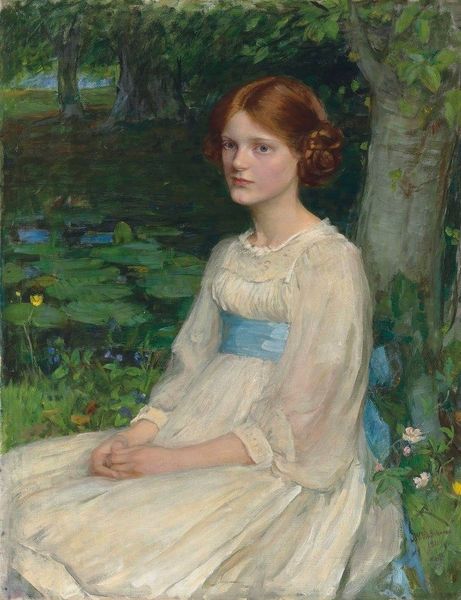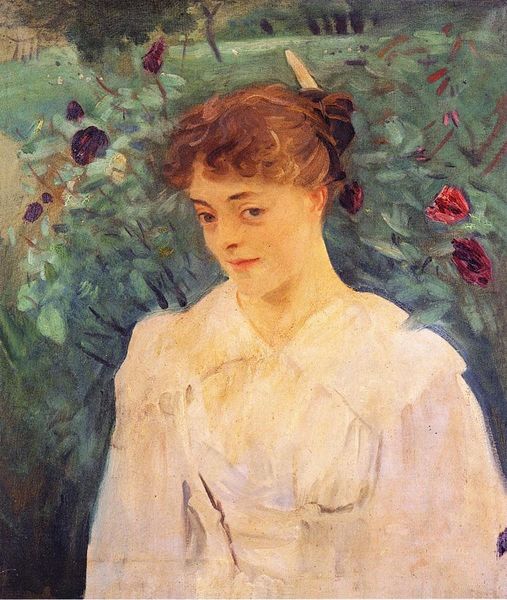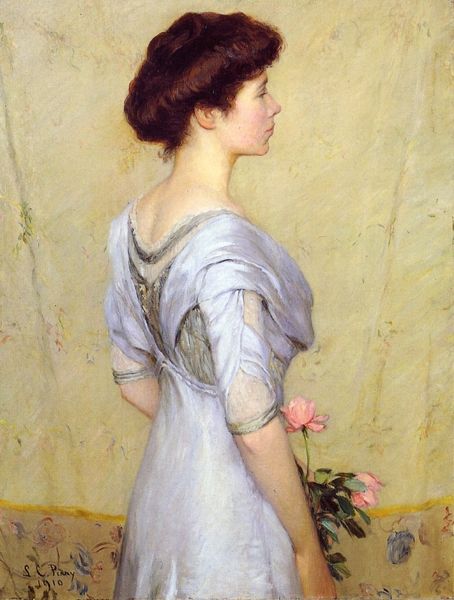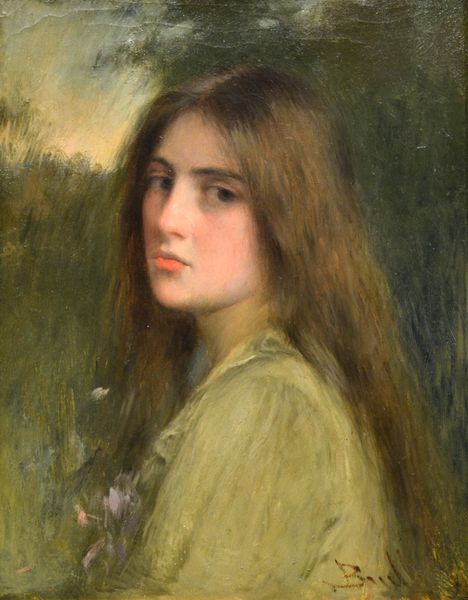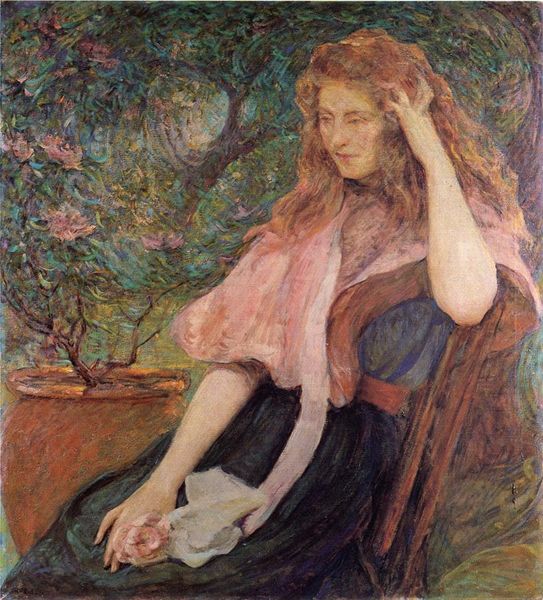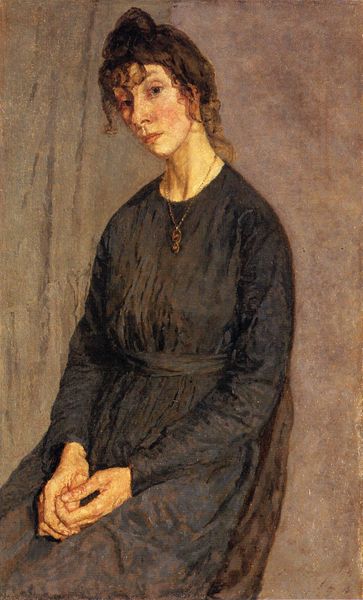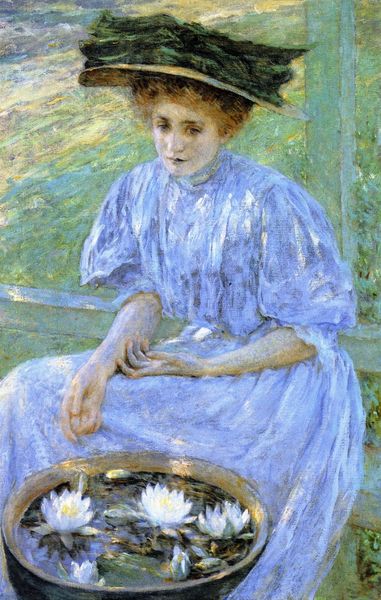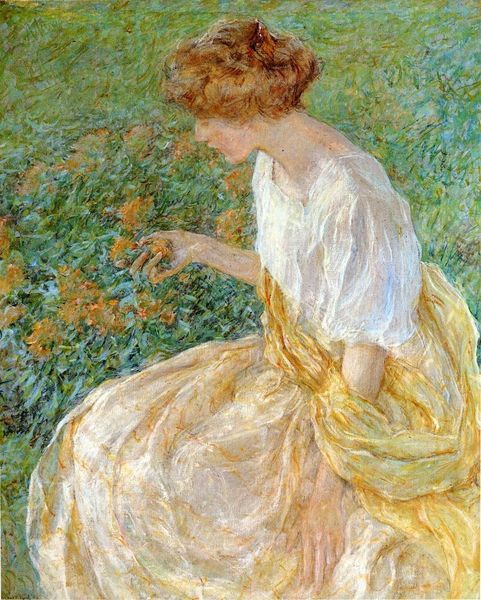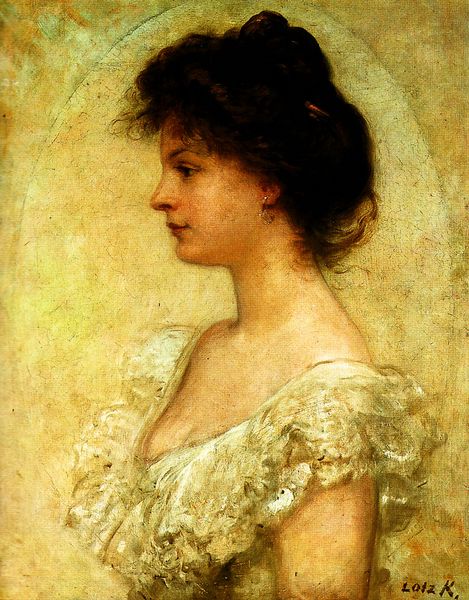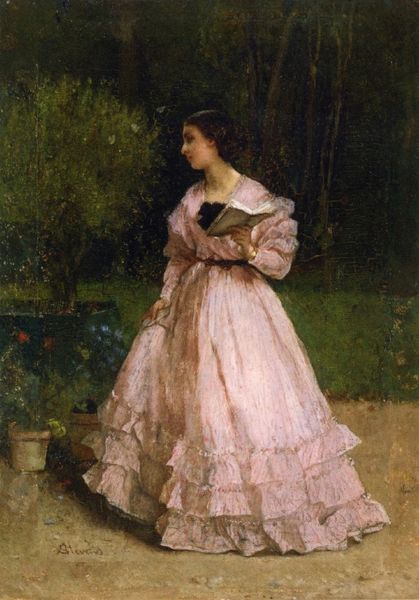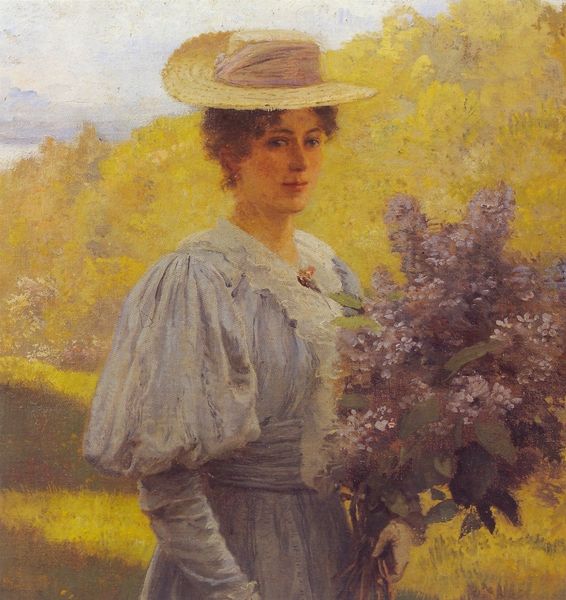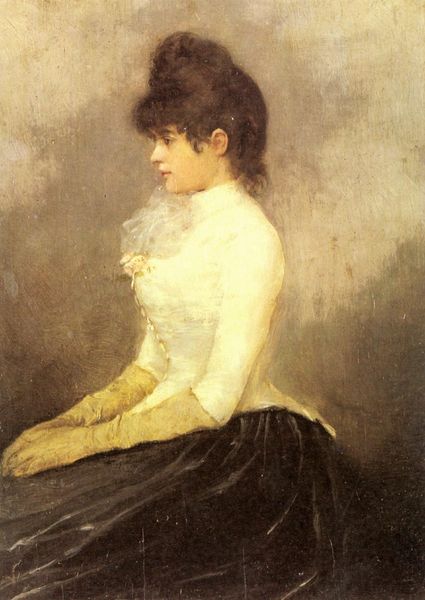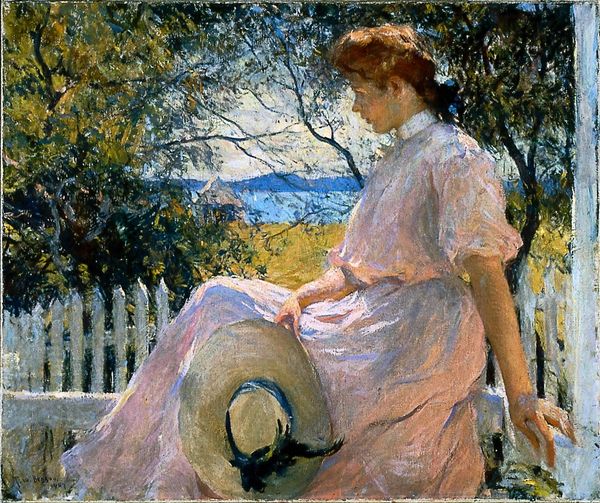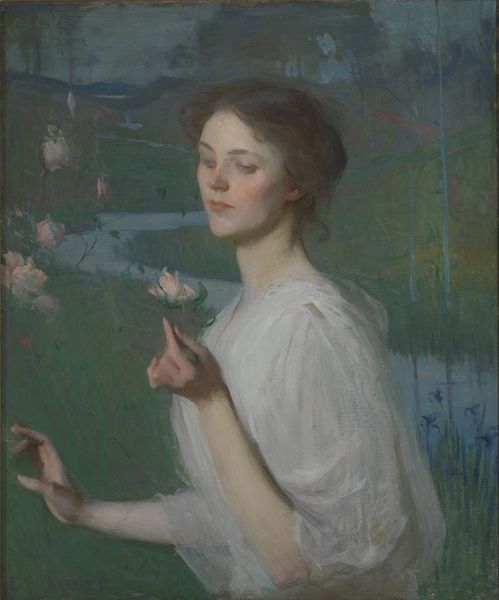
Copyright: Public domain
Editor: Here we have John William Waterhouse's "Miss Betty Pollock," painted in 1911, created with oil paints. There's a tranquility about it, almost dreamlike, with this young woman situated in nature. What draws your attention when you look at this piece? Curator: I immediately consider the materials at Waterhouse’s disposal and the societal forces shaping his choices. Oil paint itself was a relatively standardized industrial product by 1911, impacting both its availability and consistency, unlike hand-ground pigments of earlier eras. What narratives are we supposed to see regarding labour, materiality and ultimately, consumption? Editor: That’s interesting. So, you're looking at it in terms of production. Curator: Precisely. This wasn't folk art; it reflects access to academies, materials, and patronage. Notice the subject's dress—a simple white gown, which perhaps speaks to a specific kind of leisure class that could afford to own garments impractical for most labor. Editor: And the landscape setting? Does that play into this idea of consumption somehow? Curator: It certainly emphasizes leisure and access to idyllic, unspoiled spaces, setting a specific socioeconomic tone. This contrasts starkly with the reality of many in Britain, engaged in industrial labor in urban settings at the time this portrait was made. How does that impact how we understand it as viewers, and the power dynamics that are at play between painter, subject, and audience? Editor: So, you're suggesting that even a seemingly straightforward portrait reveals these layered social realities related to production, materials, and access? Curator: Exactly! By looking at the “means of production” even for fine art, it makes those complex power relationships very visible. Editor: This definitely makes me rethink my initial reaction. Now, I am contemplating the wider social context, and also who gets to decide what ‘fine art’ actually is. Thanks for sharing that with me! Curator: Of course. And it enriches our experience by looking through those different lenses, too.
Comments
No comments
Be the first to comment and join the conversation on the ultimate creative platform.
